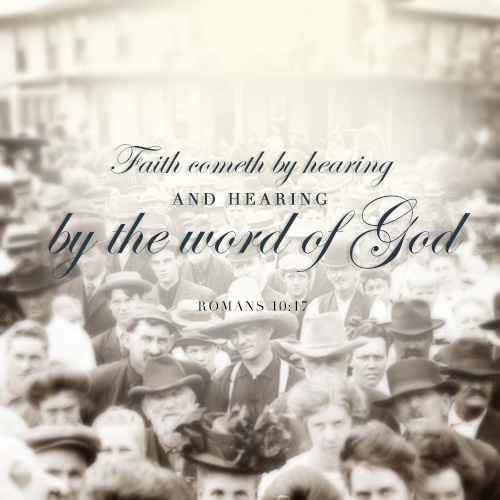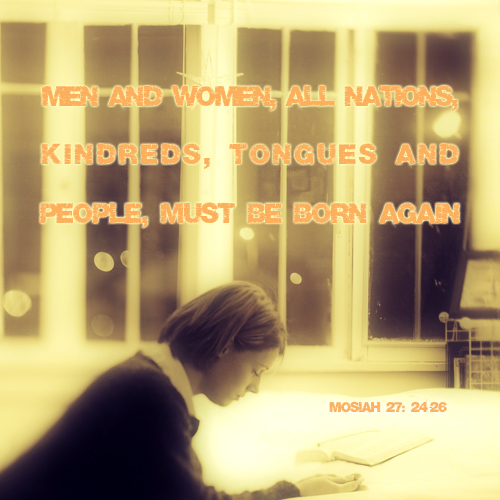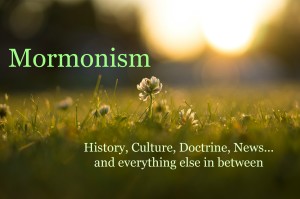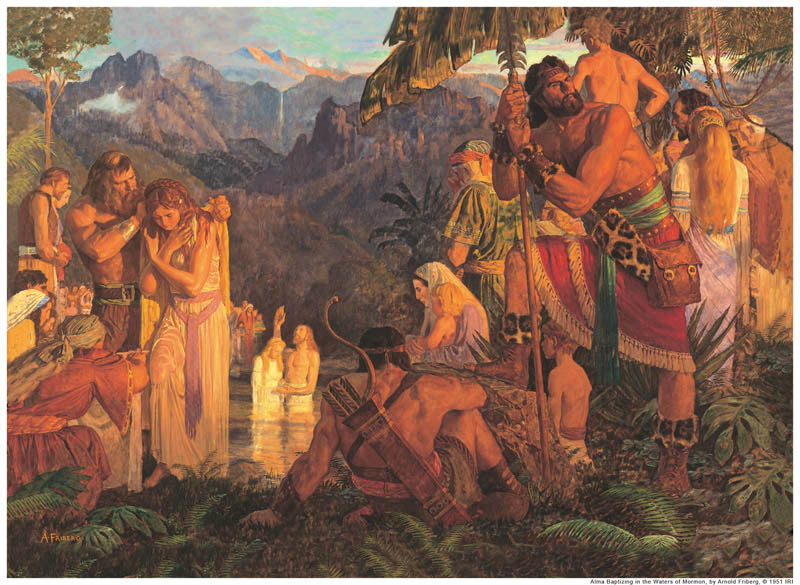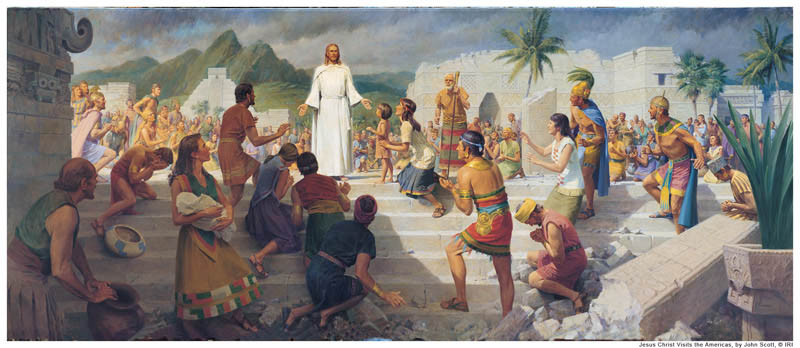 The Book of Mormon, which Mormons use as a companion book to the Bible, contains a powerful story of a missionary who risks his life to bring his people to Christ, and what happens when he converts just one person to Christianity. Even though we know nothing of the missionary’s life prior to the day he set foot in town to share his message of faith in Jesus Christ, the brief moment in time we do have has made a deep impression on Mormons who read and believe it.
The Book of Mormon, which Mormons use as a companion book to the Bible, contains a powerful story of a missionary who risks his life to bring his people to Christ, and what happens when he converts just one person to Christianity. Even though we know nothing of the missionary’s life prior to the day he set foot in town to share his message of faith in Jesus Christ, the brief moment in time we do have has made a deep impression on Mormons who read and believe it.
The missionary’s name is Abinidi and his story can be read free online at LDS.org. It begins in Mosiah 11 of the Book of Mormon. Mormon is a nickname that is sometimes used to describe members of The Church of Jesus Christ of Latter-day Saints.
Book of Mormon: A Wicked King
King Noah (not the Noah who built the ark) was extremely wicked. He took many wives and concubines, not because God told him to but because it increased his power and prestige. He held wild parties and lived an undisciplined life. He ignored the righteous teachings of his father and began to heavily tax his people in order to support his lifestyle, which included lavish buildings and great feasts. He removed the righteous priests and replaced them with priests who lived off the people and told the king whatever he wanted to hear and preached whatever allowed people to have the easiest life. As a result, the people became wicked themselves.
After a small military victory, they became extremely prideful. It was at that time that Abinidi began to prophecy warnings to them. He warned that unless they repented of their sins and began to get back on track, God would deliver them to their enemies and allow them to be placed in bondage.
A Missionary in the Book of Mormon Risks His Life
Needless to say, King Noah was furious. He asked who Abinidi thought he was to go around judging the king. He said the man was just trying to stir up trouble and demanded the missionary be brought to him. Abinidi escaped but returned two years later and began to preach again. They quickly arrested him for prophesying the death of King Noah and the destruction of the people if they failed to repent. When Abinidi preached to them, quoting from Biblical scripture, they asked what the words he taught meant. He pointed out that if they were priests, they ought to have known what the words mean and asked just what they did teach.
They said they taught the Law of Moses, which, since this was before the birth of Christ, was still in effect. However, Abinidi noted that although they taught it, they were not living it themselves.
They attempted to kill him at the king’s command, but he warned them that God had promised to protect him until he finished delivering his message. When they realized his face was glowing, they decided to believe that he was protected and he was able to continue his message. He told them that after he finished his message, he didn’t care what happened to him as long as he was saved.
The Atonement in the Book of Mormon
One important message Abinidi taught them is this:
“And moreover, I say unto you, that salvation doth not come by the law alone; and were it not for the atonement, which God himself shall make for the sins and iniquities of his people, that they must unavoidably perish, notwithstanding the law of Moses.” (Mosiah 13:28).
He explained that the Law of Moses had been created as a very basic beginner’s program for a group of people who weren’t living up to their potential. Once the atonement of Jesus Christ occurred, the Law would no longer be practiced. For several more chapters, he continued to preach the atonement and the importance of understanding that salvation requires a Savior and the Savior would be Jesus Christ. Then, in chapter 17, a miracle happens. One of these priests, a young man named Alma, is receptive to the words Abinidi is speaking. This allows the Holy Spirit to testify to him that Abinidi is speaking the truth and Alma accepts the witness of the Holy Ghost and is immediately converted.
He boldly spoke up, asking King Noah to spare Abinidi. The king cast him out, but then sent his guards to find and kill Alma. Alma went into hiding and began to record everything he could remember of Abinidi’s sermon. In the meantime Abinidi was killed on a charge that he said God would come to earth—a charge that took them three days to come up with. He was set on fire and, having done what he came to do, which was to teach Alma, he died.
Alma was Abinidi’s only conversion, but it isn’t the numbers God looks at. This conversion mattered, as do all conversions. Alma began to quietly share his testimony with others who were receptive to the message and to baptize those who believed. He organized a church that was very different from King Noah’s, with priests who held private employment and did their religious work at no charge in order to avoid corruption. He reinstated the commandments and taught the people to live moral lives of meaningful obedience to God and of service to those in need.
As the group grew larger, King Noah became aware of it. Once the guards found their secret location and were commanded to kill the believers, Alma, having been warned, gathered his people and they fled into the wilderness.
They established a church and a kingdom of their own and it grew, bringing the gospel back to the people. When Jesus Christ would come to the Americas after his resurrection, Alma’s descendants and the descendants of those he converted would be among those who saw the Living Christ.
The power of conversion to Christianity is that it helps us find out who we are and protects us from unsavory influences. Once Alma was converted, he understood that the things King Noah taught and did were wrong and he knew where to turn to know what was true. He learned he could pray for truth and could also search the scriptures, rather than listening to the self-centered teachings of an unrighteous man. The power of conversion also makes us want to share what we learn with others. This means that Christianity can increase exponentially as more people become available to share the great message and to set a good example.
About Terrie Lynn Bittner
The late Terrie Lynn Bittner—beloved wife, mother, grandmother, and friend—was the author of two homeschooling books and numerous articles, including several that appeared in Latter-day Saint magazines. She became a member of the Church at the age of 17 and began sharing her faith online in 1992.

